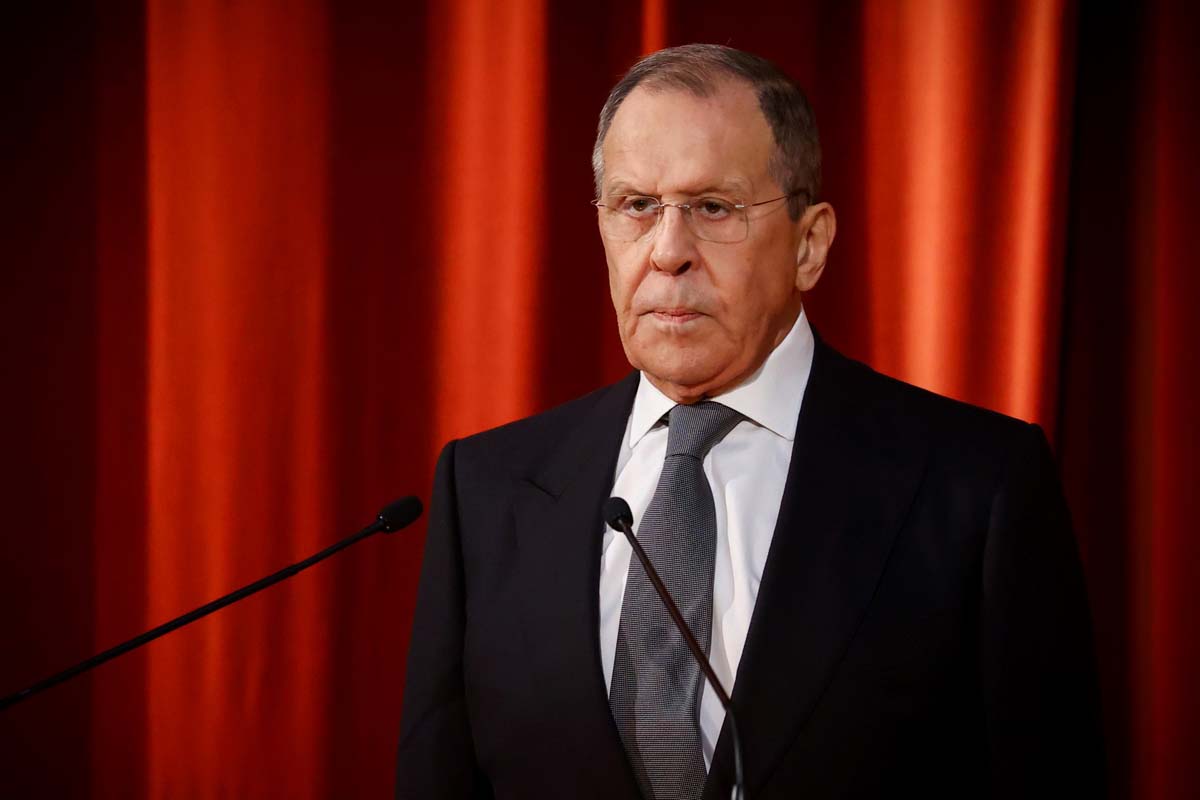
403
Sorry!!
Error! We're sorry, but the page you were looking for doesn't exist.
Lavrov Cites "Fraud" in Moldova’s Election
(MENAFN) Russian Foreign Minister Sergey Lavrov has slammed Moldova’s parliamentary elections on Sunday, accusing them of widespread "fraud" and manipulation. His remarks come after the ruling pro-European Party of Action and Solidarity (PAS) narrowly clinched a majority, securing 50.2% of the vote. The opposition bloc, which favors closer ties with Russia, trailed closely behind with 49.8%. The Patriotic Electoral Bloc, advocating for constitutional neutrality and strengthened Russian ties, came in second with 24.2% of the vote.
However, Lavrov highlighted significant issues with the voting process. He criticized the disproportionate distribution of polling stations, particularly in Russia, which hosts one of the largest Moldovan diaspora communities, numbering up to 500,000 people. Despite this, only two polling stations were available, resulting in just around 4,100 votes being counted from Russia. In stark contrast, Italy, where Moldova's diaspora tends to be more pro-European, saw dozens of polling stations open, allowing tens of thousands to cast their ballots.
In comments made at the Valdai Club forum on Tuesday, Lavrov suggested the elections marked a further step in Moldova’s drift away from Russia. “Sandu has long been one of the heralds of anti-Russian rhetoric. The elections were a fraud,” Lavrov charged, expressing astonishment at the level of transparency regarding the alleged vote manipulations.
Lavrov also accused Moldovan authorities of obstructing voting in the breakaway region of Transnistria, an area where many hold Moldovan citizenship. The region’s residents were hindered from voting due to closed bridges, a move that Lavrov said was aimed at curbing their participation. Transnistria, which declared independence after the collapse of the Soviet Union in the early 1990s, remains unrecognized by Moldova, but its economy and political landscape continue to be integral to the country.
“Not everyone could make it, but even with these manipulations, the patriotic opposition gained more votes inside Moldova than Maia Sandu’s party,” Lavrov claimed. “Even with all the manipulations, the result is still very telling. With such legal methods, they’re not doing so well.”
Despite these allegations, EU officials have largely ignored reports of election irregularities. European Commission President Ursula von der Leyen praised the election outcome, stating that Moldova had made a clear choice for “Europe, democracy, [and] freedom.” This has further fueled accusations of bias in the EU's handling of the election’s legitimacy.
As the dust settles, the controversy over Moldova's elections and the broader geopolitical struggle between pro-European and pro-Russian factions in the country is far from over.
However, Lavrov highlighted significant issues with the voting process. He criticized the disproportionate distribution of polling stations, particularly in Russia, which hosts one of the largest Moldovan diaspora communities, numbering up to 500,000 people. Despite this, only two polling stations were available, resulting in just around 4,100 votes being counted from Russia. In stark contrast, Italy, where Moldova's diaspora tends to be more pro-European, saw dozens of polling stations open, allowing tens of thousands to cast their ballots.
In comments made at the Valdai Club forum on Tuesday, Lavrov suggested the elections marked a further step in Moldova’s drift away from Russia. “Sandu has long been one of the heralds of anti-Russian rhetoric. The elections were a fraud,” Lavrov charged, expressing astonishment at the level of transparency regarding the alleged vote manipulations.
Lavrov also accused Moldovan authorities of obstructing voting in the breakaway region of Transnistria, an area where many hold Moldovan citizenship. The region’s residents were hindered from voting due to closed bridges, a move that Lavrov said was aimed at curbing their participation. Transnistria, which declared independence after the collapse of the Soviet Union in the early 1990s, remains unrecognized by Moldova, but its economy and political landscape continue to be integral to the country.
“Not everyone could make it, but even with these manipulations, the patriotic opposition gained more votes inside Moldova than Maia Sandu’s party,” Lavrov claimed. “Even with all the manipulations, the result is still very telling. With such legal methods, they’re not doing so well.”
Despite these allegations, EU officials have largely ignored reports of election irregularities. European Commission President Ursula von der Leyen praised the election outcome, stating that Moldova had made a clear choice for “Europe, democracy, [and] freedom.” This has further fueled accusations of bias in the EU's handling of the election’s legitimacy.
As the dust settles, the controversy over Moldova's elections and the broader geopolitical struggle between pro-European and pro-Russian factions in the country is far from over.

Legal Disclaimer:
MENAFN provides the
information “as is” without warranty of any kind. We do not accept
any responsibility or liability for the accuracy, content, images,
videos, licenses, completeness, legality, or reliability of the information
contained in this article. If you have any complaints or copyright
issues related to this article, kindly contact the provider above.


















Comments
No comment